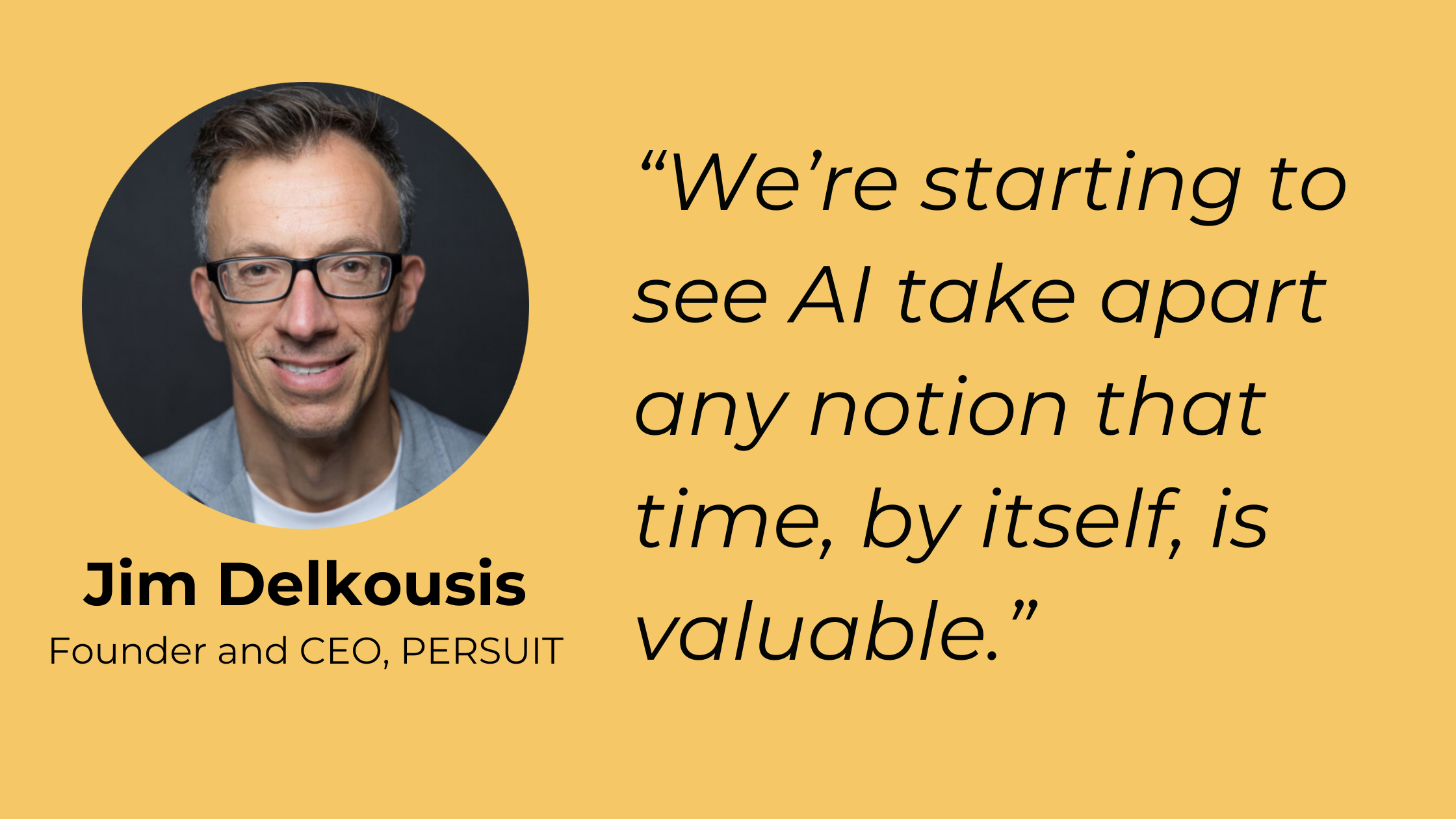
Where is the legal industry headed over the next few years?
I sat down recently with Jim Delkousis, our founder and CEO here at PERSUIT, to hear his thoughts.
Jim’s a former Big Law managing partner, a role he held until 2016 when he left to start PERSUIT.
Here’s Jim’s view on where the industry has been — and where it’s going.
The Shift to Value-based Pricing Is Not New
The legal industry has been experimenting with AFAs (alternative fee arrangements) and value-based pricing for years now.
Perhaps the most famous example began in 2008, when GlaxoSmithKline (GSK) started transitioning much of its legal work to AFAs — and away from traditional hourly billing. By 2015, 84% of GSK’s work was performed under an AFA, according to reports.
GSK’s program was profiled in a 2013 Harvard Business Review case study, which Jim read shortly after.
The HBR paper — and Jim’s introduction to the competitive sourcing process built by GSK — was a major inspiration for many of the features that are now core to the PERSUIT platform.
“When I looked at the GSK story, it made so much sense,” Jim said. “Their process rewarded value and outcomes, not just billable hours.”
In the decade since, much has been written about AFAs as the possible alternative to seemingly endless hourly rate increases.
Despite the attention, the shift to AFAs and value-based pricing has been slow. At present, AFAs currently account for only 23% of total external legal spend, according to a recent Forbes report.
AI Will Accelerate the Change to AFAs and Value-based Pricing
The launch of ChatGPT in November of 2022 has been one of the most talked about changes in legal over the past year. For example, our highest-attended training session this year was about how top GCs are adopting AI.
Generative AI tools such as ChatGPT are — by nature — tools to increase efficiency. Their promise is that they will empower users to complete tasks in minutes rather than hours.
That’s good news is you’re a business that becomes more profitable as you become more efficient.
It may not be good news, however, for businesses whose profit model relies on billable hours.
“We’re starting to see AI take apart any notion that time, by itself, is valuable,” Jim said. “I think that is no longer a sustainable business model for law firms and is no longer going to be acceptable by in-house teams.”
What does the acceleration of the shift to value-based pricing mean for the future of legal?
In Jim’s view, it’s an opportunity for the industry to transform itself into one that’s more viable and sustainable, especially for lawyers working in firms.
“We've talked about the poor health outcomes when you're measured by reference to hours and how many hours you can work and the bias that it creates,” Jim said. “The next generation of lawyers, they're focused — not how many hours they can bill — but how they can solve problems. That's an exciting industry to be a part of.”
Note: To hear more of Jim’s thoughts about the changes in legal, listen to the full interview on the Innovative Legal Leadership podcast.
